12 Gruesome Realities Of What It Feels Like To Die By Seppuku

628.2k views 12 items
With its complex, refined ritual and unadulterated brutality, seppuku, is surely one of the most fascinating (and horrifying) ways to commit suicide. Maybe you already read what committing seppuku is like as far as methods, tradition, and history are concerned, but you're still curious. After all, in your last minutes, as you disembowel yourself, what does seppuku feel like (other than extreme pain)? Well, wonder no more, because the following list will let you know what it might feel like to experience death by seppuku. It goes without saying, but be warned: the contents are graphic, much like the guts that flop from your stomach when you cut yourself open, like fish thrown from the ocean onto a boat.
Seppuku dates back thousands of years, and has been used as a means of suicide well into the modern age. It is steeped in tradition, honor, and a sense of self-responsibility and redemption many of us will never grasp. It's also incredibly painful and complicated, and takes a lot of self control. We don't recommend trying it for yourself (duh).
If you're still wondering what dying from seppuku is like, read on for all the gory details.
There Will Be a Feeling of Calm Before the Storm
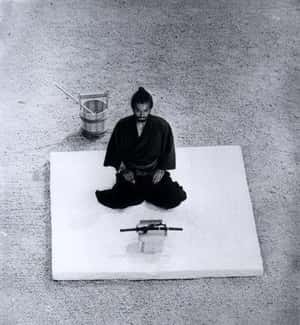
To be clear, there are many ways of committing seppuku, depending on the situation and time period. This list focuses on the most traditional method, which involves two people and a lengthy ritual beforehand.
Said ritual, which involves drinking sake and writing poetry, among many other things, is designed to prepare you for seppuku, and put you in a calm, accepting, meditative state of mind. You'll be in a serene setting, surrounded by those you respect and chose to oversee your death. You'll reflect on your life, its fleeting nature, and the ultimate irrelevance of most aspects of existence, as you prepare yourself to die.
In a way the pre-ritual and act of committing seppuku is, in the juxtaposition of esoteric beauty and graphic, violent ugliness, a perfect encapsulation of the dueling natures of Japanese aesthetics. The preparation and mindset sound very peaceful, considering you're about to drive a giant knife right into your abdomen.
You'll Have to Force Yourself to Make the First Cut
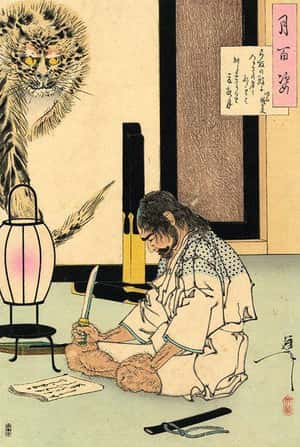
Regardless of how calm you are, it takes a lot of effort to skewer yourself with a samurai blade. Fear does a lot of things to the brain and body, even if you're not conscious they're happening. For instance, fear of having to stab yourself may create a reaction in your brain that sends chemicals to your heart and muscles. Your heart rate will increase, your muscles will tense, and your breathing may speed up. This is an autonomic response. There won't be much you can do about it. The tensing of your muscles may make it difficult to get the stabbing done, though this doesn't really matter, because if you're committed to performing seppuku, you're going to have to do it no matter what. It will require all your effort.
You'll Feel Intense Pain, Though Maybe Not Immediately
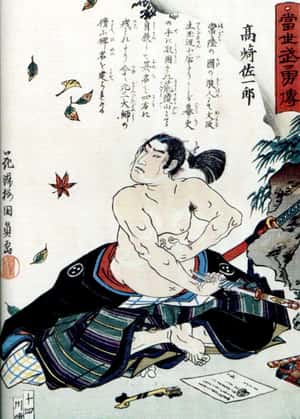
It might go without saying, but stabbing yourself is going to hurt. Especially because you'll be stabbing yourself through the intestines with a war weapon. It may be the most intense pain you've ever felt, though it won't hit right away. People who have been stabbed say you don't feel pain immediately, though you do feel impact, like a punch. Once the pain hits, stab victims report a pain so intense they wish they were dead. For those committing seppuku, that wish soon comes true.
Your Internal Organs Are Going to Get Sliced Apart (Yay!)
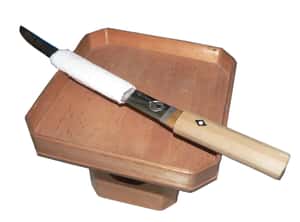
Once you've got the knife in, tradition dictates you slit open your belly, sometimes with two separate cuts. This splits your stomach cavity open, exposing your internal organs, and cuts the organs themselves. There don't seem to be any first hand accounts as to what this feels like, because those who have their organs sliced up don't usually survive. However, women have had their bellies cut open for C-sections, a few sans anesthesia. One woman said the pain was so great she gritted her teeth so hard one of them broke.
During the Civil War, some soldiers underwent surgery without anesthesia after being wounded on the battlefield. Accounts described the brutality of such procedures, some of which involved slit-open stomachs. Soldiers were given something to bite on, as a way of dealing with the pain, and surviving artifacts, such as bullets with teeth marks in them, show just how painful it was.
You'll Want to Scream (But Should Stay Quiet)
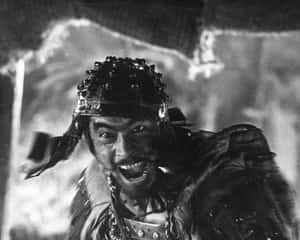
You're in worlds of pain. Your guts are open and you're bleeding everywhere. Seems only natural you'd scream, especially considering this is a naturally programmed response. Scientists have found screaming jump-starts the body's fear response, which pumps you with chemicals meant to keep you alive. That being said, if you're strong, honorable, and traditional, you'll be silent. Crying out is a sign of weakness, and would be a shameful way to die. No matter how badly you want to shriek, shut up and die
You'll Be Dizzy From Pain and Blood Loss
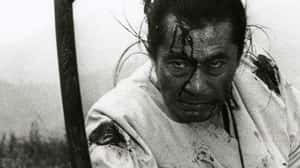
The initial stab wound might not bleed much, but cutting your stomach open will generate a deluge of gushing guts and plasma. This, mixed with the pain, may send you into shock. Hypovolemic Shock, specifically. Symptoms of this are headache, fatigue, nausea, sweating, and dizziness. After that, you'll feel confusion, weakness, and lightheadedness, and may even pass out. However, it's also possible you won't have time to go into shock, since someone will be ready to cut your head off when you're done with your cutting.
Your Muscles Will Feel Like They're on Fire

As your fear response intensifies and mixes with your pain and confusion, your muscles might start to feel weird. When you're afraid, your brain releases chemicals to make your muscles work better, so you can escape danger. Because of this, your muscles may feel energized, active, and twitchy. As blood loss makes you weak and your muscles feel tight, alive, and itching to take you as far from pain as possible, you may feel like you're on fire.
Your Survival Instincts Are Going to Kick in Hard

As you're kneeling in the slop of your guts and viscera, bits of belly skin hanging from a gaping hole in you like stubborn flakes of foil stuck to the mouth of an ibuprofen bottle, will your flight or flight instinct kick in like a motherf*cker. In fact, this may happen before the kneeling-in-your-offal phase, while you're slicing yourself open.
Your hypothalamus (part of your brain) will work overtime to activate your sympathetic nervous and adrenal-cortical systems, which make your body tense, speeds your system up, and forces your organs and nerves to work hard to keep you alive. Your brain will tell you to run, to stop what you're doing, to do everything in your power to not keep hurting yourself. It might seem impossible for you to remain calm, because your brain is fighting its greatest battle to you alive, like a furious samurai.
If You're a Good Little Samurai, You'll Remain Calm
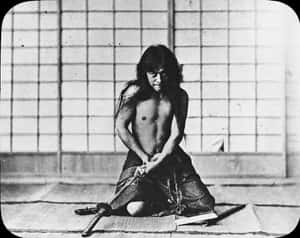
Seppuku is steeped in tradition and honor, according to which you must stay completely calm while stabbing yourself, opening your stomach, spilling your guts, and waiting for someone to lop your head off. Screaming, or any other obvious sign of pain or regret, is dishonorable and weak. You'll have to suppress natural fear and pain responses as chemicals course through your body trying to convince you to do the opposite.
Luckily, as a samurai, you've spent most of your life training for moments like this. You are a master and suppressing emotions and pain. Chances are you've endured a lot of the latter and denied yourself almost all of the former in pursuit of purity as a warrior. Think of yourself as an artist in the medium of stoicism, and seppuku as your masterpiece.
You'll Never See the Death Blow Coming
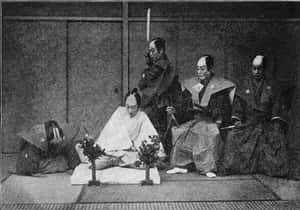
Seppuku is done by two people, and the cuts you make aren't what kills you, it's that second person, the kaishakunin (usually a friend or trusted colleague). Your kaishakunin will cut your head off with one swing of the katana. If the kaishakunin is properly trained, you won't see the blow or know it's coming, and it will be done cleanly. If you start screaming or acting in some other dishonorable way, the kaishakunin is duty-bound to decapitate you immediately, so onlookers don't see you in a shameful state. If your body overpowers your godly mental abilities to calm yourself, expect your head to fly off pretty quickly.
You Might Feel Your Head Fall Off When You Die
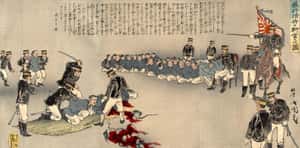
Just because your head is cut off doesn't mean you're dead right away. There have been several known cases of people blinking, moving their lips, and twitching facial muscles after being decapitated. It's unclear whether this phenomenon, lucid decapitation, means the beheaded is cognizant of the beheading or whether it's just muscle reactions (since you can't really ask anyone about it), but there's a chance you might still be seeing things after you get your head sliced off. If that's the case, you may feel your head drop forward into your lap, as is tradition.
Considering that a gifted kaishakunin will leave a small flap of skin on the neck, to make sure that the head doesn't bounce away, there's a chance the last thing you'll see is your chest, arms, or crotch.
Posture Is Important, and Keeps You Upright in Death
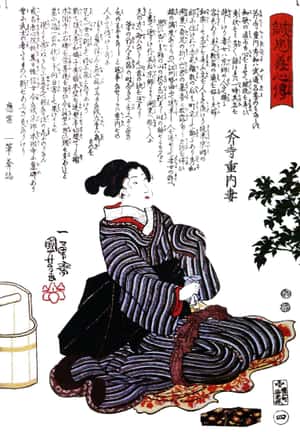
If done correctly, seppuku is bloody, but not without grace. You'll be sitting upright, well balanced, your body squared. As you die, this position will keep you from falling over, or at least sprawling on the ground in a shameful pose. Some women bind their feet before they stab themselves, to look demure even in death. The body's natural reaction, upon death, is to collapse, so you may eventually slump forward or backward, but as your body realizes it's no longer attached to your head, or alive, it will shut down in a seated posture.
Sent from my iPad
No comments:
Post a Comment
feel free to leave a comment or two